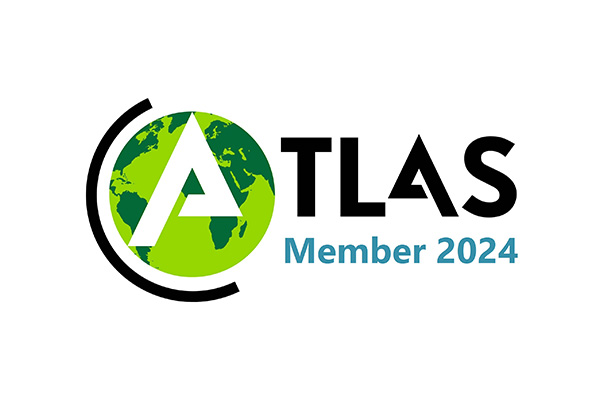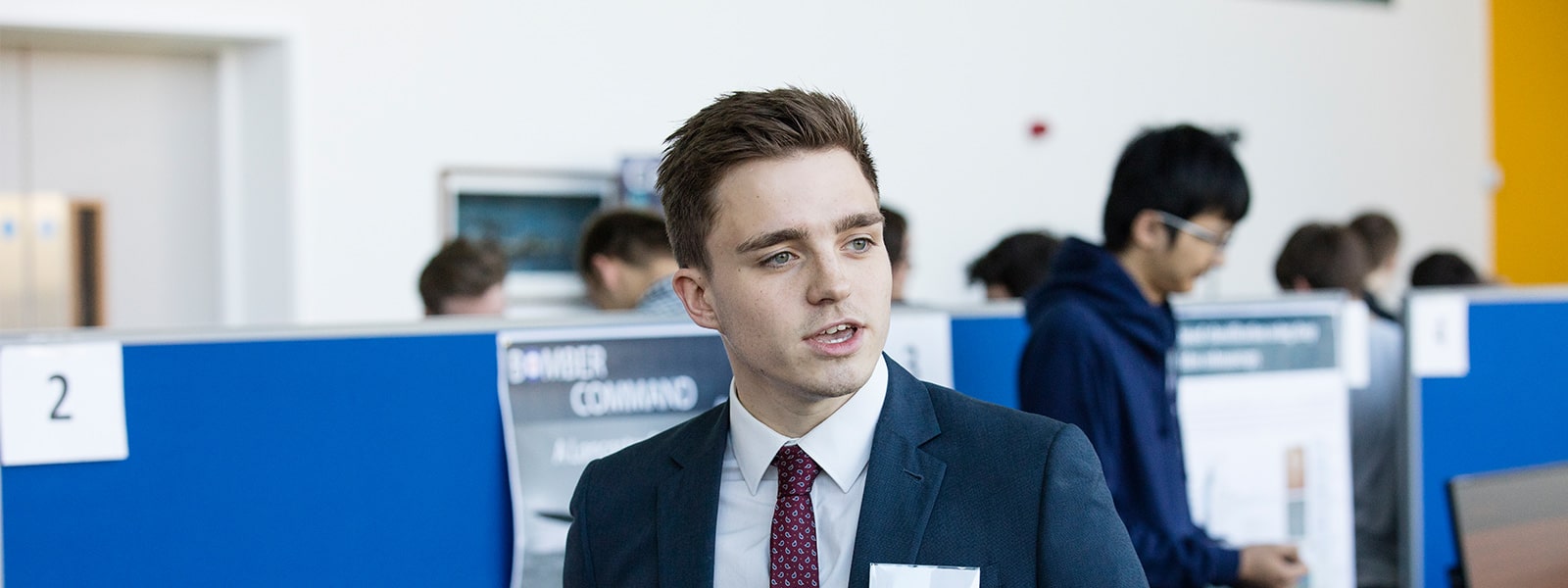Module Overview
The purpose of the module is to expose students to relevant industry insights, perspectives, opinions, and experiences and facilitate a critical understanding of working in the tourism, events, and sports business industries. Life-long learning and value creation are necessary elements in the successful development and progression of a tourism, events, and sports business professional. The module aims to empower students and guide their development into reflexive, ethical, and responsible tourism practitioners by exposing them to industry practitioners, their practices, and experiences. As a result, students will be able to demonstrate that they have life-long learnings skills to sustain effectiveness and value creation in a global-local business environment within the tourism, events, and sports business industries and beyond.
Throughout the module, students will be able to apply graduate knowledge and a local and global mindset in a manner which is consistent with sustainable development goals. The module content, theories and guest speakers will facilitate a critical discussion on the nature of the tourism, events and sports business working environment and will support their job hunting and career mapping after graduation. Exposure to concepts such as cultural capital and emotional capital, as well as coaching in the workplace will help develop student employability, resilience, and emotional intelligence.
The module will discuss practical applications of change management, industry resilience, innovation, and creativity management for the three sister industries, as well as in relation to professional development and the student as future industry professional. It is vital to reflect on how change management, creativity management and innovation management theory can help the industry as well as the tourism, events, and sports business professional. Understanding of industry application of these key theories enhances the resilience and adaptability of those working in them. Students will be able to utilise evidence and critical thinking as the basis for creative problem solving and to inform responsible decision-making within the tourism, events, and sports business industries. Exposure to industry professionals and networking opportunities will support students to be effective communicators within diverse stakeholder contexts within the tourism, events and sports business industries and the wider economy. After completion of this module students should be able to contribute to the development of inclusive, responsible, and resilient tourism, events, and sport business industries.
Module Overview
This module aims to introduce the concepts, theories, and techniques of strategic management, enabling learners to develop a well informed and critical understanding of the business environment. Students can also develop the tools and frameworks to analyse and evaluate complex, changing, and emerging issues facing 21st century organisations, help them to know and conceive how organisation can create and sustain competitive advantage over rivals in the marketplace.
Module Overview
This module is inscribed within the principles of social justice, critical tourism studies and responsible management, and underpinned by a range of concepts drawn from sociology. In particular, it relates to the following sustainable development goals: SDG8 Decent work and economic growth and SDG10 Reduced inequalities.
This module focuses on developing critical, reflexive and ethical future leaders and industry professionals. It actively engages students in critical reflection, research and dialogue, identifying critical issues in the contemporary tourism industry as well as seeking solutions to overcome marginalisation and inequalities, and make tourism workplaces and experiences more inclusive.
Through the module, students explore critical issues related to tourism participation (taking into consideration gender, race, age, disability), tourism employment and workplace experiences. Students are introduced to and actively engage with research on tourism (in)equalities from both the tourist and worker perspectives.
The module examines the social factors and global political trends and how these shape both access to, and work within, tourism. It focuses on the way in which key socio-political variables, such as class, race, gender, age and nationality shape such access to tourism and workplace experiences.
The module aims to examine how access to tourism is shaped by the myriad social and political relationships that are a part of every person’s lived experience. The module also looks at conditions of work within the tourism sector, addressing a range of issues and concepts related to tourism workplaces and affecting tourism workers.
It is expected that by the end of the module students will have had the opportunity to develop a deeper critical appreciation of how issues such as inequalities in race, class, gender and access to technology, shape holiday-taking patterns as well as how they impact on working in tourism.
As they transition to the world of employment and graduate job market, the goal is to equip students with knowledge and understanding of these critical issues, and in this way shape them as leaders of the future, able to transform the industry for the better and make it more equitable and inclusive.
Module Overview
The Final Independent Research Project, allows students to undertake a substantive piece of research in the context of both their chosen degree specialism and Lincoln International Business School's commitment to principles of responsible management. Research areas will be framed by areas of research expertise existing with relevant departments. Students will progress through guided research and workshops to supervised independent study.
Module Overview
This module addresses the implications of interruption to business and the issues and problems that may arise in connection with measures designed to counteract the effect of such interruption. Students are introduced to the underlying rationale for crisis management and business continuity initiatives both from a theoretical and professional perspective. The module examines the positioning of crisis management within an organisation’s overall strategic plan by reference to examples of good practice from organisations at home and abroad.
Students can examine the role and function of effective crisis communication during times of crisis. Approaches to crisis management are evaluated and applied to a range of organisational case studies. The module also explores the relationship between crisis management and risk management which is seen as an inherent part of all businesses and which is further compounded by the uncertainties with the nature of product and consumer.
Module Overview
This module examines the various scenaria that arise during the management of natural disasters. It enables students to examine different ‘disaster’ situations and competing approaches to disaster management intervention measures.
The module aims to expose students to the anatomy of disaster and to reflect upon the best strategic practices for the management and control of disasters and emergencies. The module uses real case studies to demonstrate the importance of preparedness for disaster, and the need for effective recovery and rehabilitation measures. Students are introduced to the levels of command and the systems in place for any situation requiring major emergency or disaster management.
The module also examines the position of relief workers and victims caught up in disaster. As such, this module analyses a range of strategic options in terms of theory and practice. The development of strategic thinking is relevant to both those interested in uniformed and non-uniformed public sector management.
The module aims to increase students’ awareness of the nature and management of disasters, drawing on an interdisciplinary approach. It is designed to enable graduates to engage with and relate to disaster professionals with confidence and commitment.
Module Overview
The purpose of the module is to expose students to various theoretical and practical aspects of entrepreneurship and new business venture creation in tourism, events, and sports business management. The role of entrepreneurship within the fields of tourism, events, and sports business management is vital. The current global economic and business climate requires graduates within these fields to be entrepreneurial and proactive. The module introduces students to key concepts related to entrepreneurship and new business venture creation, but also considers intrapreneurship and the application of entrepreneurial mindsets within the workplace, as well as dynamic careers where full time employment is complemented by a small entrepreneurial venture. The module aims to equip students with confidence and a desire to take their exploration of entrepreneurship further.
The module will be delivered using a range of teaching and learning approaches. This strategy includes contemporary case studies designed to develop an understanding on theory application into practice. Where relevant, entrepreneurial academics, business start-up graduates, intrapreneurs, entrepreneurs, and industry professionals will be invited to share their knowledge and experience. Through the formative and summative assessment strategy, students will be encouraged to develop their own approaches to entrepreneurship, business start-up, intrapreneurship and consider entrepreneurial careers.
The module considers entrepreneurship in different country contexts, the social and cultural dimensions of entrepreneurship, case studies from a wide range of tourism, events and sports business sectors, and industry perspectives and examples are included.
Module Overview
This module is only for students whose first language is not English.
The module aims to enable students to gain high-level communication skills appropriate for leaders in the international business world. The main aims are to strengthen and consolidate existing communicative competence and introduce new skills as appropriate, to apply communication skills to selected professional contexts, and to provide increasing opportunities for initiative, autonomy, and group work.
The module aims to enable students to be able to communicate information effectively within international businesses to a diverse range of audiences, presenting an organisation and its services or products in the clearest possible way to consumers, clients and colleagues. Students can develop the skills to work successfully in a team and in a professional manner appropriate for leadership.
Module Overview
This module is only for students whose first language is not English.
The module aims to enable students to gain high-level communication skills appropriate for leaders in the international business world. The main aims are to strengthen and consolidate existing communicative competence and introduce new skills as appropriate, to apply communication skills to selected professional contexts, and to provide increasing opportunities for initiative, autonomy, and group work.
The module aims to enable students to be able to communicate information effectively within international businesses to a diverse range of audiences, presenting an organisation and its services or products in the clearest possible way to consumers, clients and colleagues. Students can develop the skills to work successfully in a team and in a professional manner appropriate for leadership.
Module Overview
Futurology or futures studies, futures research, or futurism is the systematic, interdisciplinary, and holistic study of social and technological advancement, and other environmental trends, often for the purpose of exploring how people will live and work in the future. In a changing world and industry, highly vulnerable to outbreaks, climate change, political and social unrest, and other highly damaging disruptors, studying the potential futures of tourism, events and sports business management is important. The purpose of the module is to introduce students to tools and approaches related to the study of tourism, events, and sports futures such as scenario planning.
The skills developed throughout the module will support students navigate their post-graduation and job-hunting period, in their workplace, as well as in their long-term professional development. The methods studied here can be applied in a wide variety of contexts, from professional to self-development.
Module Overview
Students can elect to undertake their final project as an enterprise project, culminating the development of a business plan for a new enterprise. Planned ventures will be framed by Lincoln International Business Schools commitment to Principles of Responsible Management and as such prospective start-ups will need to evaluate their proposed venture in the context of sustainable development. Student will be provided with appropriate academic support and business advice.
Module Overview
The Negotiated Client Based Project is an elective which develops the skills and understanding of what makes a successful consultant, whilst reviewing industry sustainability issues and what is needed to support a company through change. The Negotiated Client Based Project (NCBP) sits alongside other forms of independent study at Level 6 including (but not exclusively) Independent Research Project, or Independent Responsible Enterprise Project. Students are encouraged to learn and understand the challenges, opportunities and skills required by organisations to make effective decisions on behalf of a client in a “live business” environment. This module enables students to consider success and failure aspects of business and marketing within the context of LIBS commitment to Principles of Responsible Management and sustainable development.
Module Overview
The purpose of the Live Events Management module is to support the development of students as event managers. Students will build upon the knowledge acquired in the first and second year of their degree and put theory into practice to establish themselves as event organisers. Throughout the module students will acquire both theoretical knowledge and practical skills in planning and executing a live event. The module will cover key areas in event management such as event design, sustainability in event practice, or event evaluation and legacy. Both highly successful event examples, complex event failures and a wide range of event management case-studies will be used to help students understand the events industry and events from a practical angle.
Students will be able to organise a live event and reflect on their development as event mangers. Within each workshop group, students will be split into one of four sub-groups, namely a project management team, a marketing & PR team, an operations team, and a finance team. Each workshop group will work within these teams to organise an event for their chosen charity or university society. Students will then be able to reflect on and write about their experience organising a face-to-face, online or a hybrid event.

















